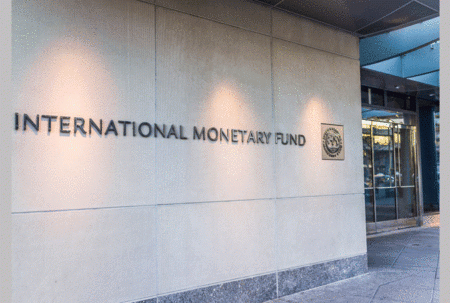
Press Release No. 19/235
FOR IMMEDIATE RELEASE
June 24, 2019
IMF Executive Board Completes First Review Under the IMF’s Extended Fund Facility for Barbados and Approves US$48.7 Million Disbursement
· The completion of the review enables an immediate disbursement of SDR 35 million (about US$48.70 million). A four-year EFF arrangement was approved on October 1, 2018.
· Fiscal adjustment is ongoing, with the authorities targeting a primary surplus of 6 percent of GDP in FY2019/20 and several years thereafter.
· A public debt restructuring is complementing the fiscal consolidation. The restructuring of domestic public debt completed in November 2018 has helped to substantially reduce the public debt burden. The authorities are engaging in good faith negotiations with external commercial creditors.
On June 24, 2019, the Executive Board of the International Monetary Fund (IMF) completed the first review of Barbados’ economic reform program supported by an arrangement under the Extended Fund Facility (EFF). The completion of the review allows the authorities to draw the equivalent of SDR 35 million (about US$48.70 million), bringing total disbursements to SDR 70 million (about US$97.40 million).
The four-year EFF arrangement amount equivalent to SDR 208 million (about US$289.41 million, or 220 percent of Barbados’s quota in the IMF) was approved by the Executive Board on October 1, 2018 (see Press Release No. 18/370 ).
Barbados has embarked on a comprehensive Economic Recovery and Transformation (BERT) plan aimed at restoring fiscal and debt sustainability, addressing falling reserves, and increasing growth. The program seeks to protect vulnerable groups through strengthened social safety nets.
Following the Executive Board discussion, Mr. Tao Zhang, Deputy Managing Director and Acting Chair said:
“Barbados has made a strong start in implementing its ambitious and homegrown economic reform program. All performance criteria for March 2019 were met, and all structural benchmarks have been implemented, although a few with minor delays.
“The FY2019/20 budget provides a solid basis for the targeted fiscal consolidation of 6 percent of GDP. The adjustment effort is supported by several new taxes, ongoing reforms in public financial management, a reduction of transfers to State‑Owned Enterprises (SOEs), and adequate provisions for social safety nets and capital expenditure. If necessary, the authorities stand ready to take additional measures to reach the targeted primary surplus. The planned adoption of a fiscal rule in 2020 will help sustain the adjustment effort over the medium and long term.
“Reform of SOEs is critical for achieving the primary surplus target and maintaining it over the medium term. To secure fiscal space for investment in physical and human capital, transfers to SOEs are envisaged to significantly decline by a combination of stronger oversight of SOEs, cost reduction, revenue enhancement, and mergers and divestment.
“A comprehensive public debt restructuring complements the fiscal consolidation. The domestic debt restructuring completed in November 2018 has significantly reduced Barbados’s public debt burden without jeopardizing financial stability. The authorities are continuing good faith negotiations with external commercial creditors, which together with the domestic debt restructuring, should help restore debt sustainability.
“The fixed exchange rate has served as a key anchor for macroeconomic stability and international reserves have increased. The exchange rate peg and monetary regime would be further bolstered by the planned reforms to strengthen the central bank’s mandate, autonomy, and decision‑making structures.
“Structural reforms target improvements in the business environment to increase growth over the medium term. With the adoption of a new Town and Country Planning Law in January 2019, the process for providing construction permits has been streamlined. Going forward, the authorities intend to carefully review and address the different obstacles to growth.
“Adequate social spending and an improved safety net are key priorities for the program. The authorities have launched a training and outplacement program to mitigate the impact on unemployment from layoffs at the central government and SOEs.”
Media contact:
Randa Elnagar relnagar@IMF.org
+1 (202) 623-7100
Follow us: @IMFSpokesperson, @IMFNews, and Facebook